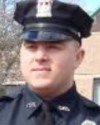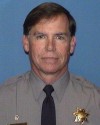Two years ago a frequent flyer to the Baltimore jail was arrested and likely broke his own neck while being transported to jail. Being the latest opportunity to start days of lawlessness, the race baiting poverty pimps of the Eric Holder "Just-Us" department, et all went in and helped start a riot. Not to be outdone with the lawlessness, the ambitious State's Attorney, Marilyn Mosley, attempted to railroad six cops for a crime they did not commit.
Now we have the results. Prepare to be "Shocked, just shocked..."
Little change seen 2 years after Gray’s deathYes, the judicial rail road died, thank you lord. Hopefully the city gets bitch slapped in the lawsuits the officers will put on that bitch Marilyn Mosley. But I really love this sentence, "crime has risen to startling levels, and arrests are down." Perhaps there is a link between the two. You threaten the cops if they go out and assertively police, they will go back into their safe space. They will simply answer calls for service, but they will not go out and stop the usual suspects who continue the crime in these neighborhoods.
In Baltimore, only police reform seems to be moving forward
BALTIMORE — In the days and weeks after the death of Freddie Gray shook Baltimore, leaders and activists spoke of seizing the moment to confront some of the city’s most vexing challenges: entrenched poverty, mistrust between police and the community, criminal violence.
Two years after Gray’s death, some wonder if Baltimore let slip an opportunity to achieve lasting change.
The six police officers who were charged in Gray’s arrest and death walked free. Promised funding for community-based initiatives has dried up. Crime has risen to startling levels, and arrests are down. And much of the city remains mired in poverty...
...others say they see reasons to hang on to optimism — perhaps none stronger than a judge’s approval last Friday of a consent decree that will direct reforms in the Baltimore Police Department.
“I feel like the city’s been engaged in two years of conversation,” said Ray Kelly, president of the No Boundaries Coalition and a longtime Sandtown-Winchester resident. “And (Friday) was the first day of actual change, where now we can start to work to put this damn thing back together.”
Gray’s death after being arrested, and the unrest that followed, jolted city leaders into conversations about structural racism, poverty, educational opportunity and police misconduct. City Councilman Leon Pinkett, a West Baltimore Democrat who was elected last year, said police reform is one of the few items moving forward.
“When we look at the number of social and economic issues that face Sandtown,” he said, “I don’t think we’re making enough progress...”
...‘Living in danger zone’
Violence in Baltimore spiked after Gray’s death, and crime remains a major concern.
The city suffered more than 300 killings in each of the past two years. 2015 was the city’s deadliest year, per capita, on record. 2016 was second.
Through April 1, homicides are up 60 percent this year compared with the same period in 2015, before Gray’s death. Nonfatal shootings have doubled, and robberies are up nearly 70 percent.
“We are living in a danger zone and not getting the protection we need,” said the Rev. Keith Bailey, a pastor of Greater Bethesda Baptist Church in West Baltimore and president of the Fulton Heights Community Organization. Gray performed more than 100 hours of court-ordered community service with the organization.
City officials say the consent decree approved Friday by U.S. District Judge James K. Bredar will not only reform police practices but also help reduce crime by fostering bonds with the community.
U.S. Attorney General Jeff Sessions has expressed skepticism, saying he has “grave concerns that some of the provisions of this decree will reduce the lawful powers of the police department and result in a less safe city.”
At a community meeting last week, activist J.C. Faulk told State’s Attorney Marilyn Mosby and Police Commissioner Kevin Davis that he believed police officers were still avoiding accountability.
“What do we need to do?” Faulk asked Davis. “We march, we go to meetings, we speak to you, we send emails, make calls — and then we still have police officers killing citizens, and they walk away.”
Davis replied that the agency’s commitment to reform “is real.”
“There are 18,000 police departments in our nation,” he said. “And I dare say there aren’t any more progressive than Baltimore is right now.”
Police can point to metrics that show progress: Taser deployments and complaints about use of force are each down more than 40 percent. The department rewrote its use-of-force policies for the first time in 13 years. Davis fired 23 officers last year...
You can review the remaining parts of the article, many of which cover other items, such as poverty. I'll focus on the police issues. Taser deployments are down "40 percent," in other words officers are not getting into situations where intermediate force is believed needed by the cop. Why? It could be the cops are being "trained in de-escalation techniques" and don't need to use intermediate force anymore (I wonder if use of Mace or baton's is also down, not in article). Or, and this is speculation on my part, the cops are not going out and getting the bad guys.
Policing, to be effective, must be assertive. You must drive around, know the neighborhood, know the usual suspects, the gang members who commit most of the crime and terrorize people. You must know how drug sellers and buyers pass cash and the narcotics to each other, and where they hide weapons. And you must be willing to go out, stop the suspect, and initiate an investigation.
Right now police in several cities, like Baltimore, are not willing to put their lives, professionally and physically, on the line. So the cop on the beat will simply pull back, answer calls for service, and if this leads to more people getting killed, so be it. That may sound cold. but these men and women have families to support and professional lives to protect. And in the the case of Baltimore (and other locations, New York anyone), openly hostile civilian leadership. Doesn't make for a motived police force.
Baltimore PD, the Attorney General said he would review the consent decrees the B Hussein Obama regime pushed on local police forces and there may be some relief in sight. Otherwise, be safe out there. I hate to say it, you only have yourself to back you up.










 Editor’s Note: This article was originally published on American Military University’s blog,
Editor’s Note: This article was originally published on American Military University’s blog, 
